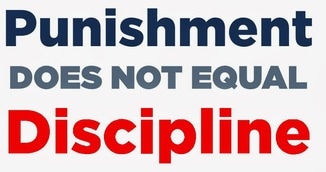
When we read the first two chapter of Job we learn that God did not do, or cause the things that his friends, and Job himself believed that God did. Satan is the one ruined Job financially, caused the death of his children, and eventually ruined Job’s health. God allowed all these things but did not do them. We learn that Job asked God why these things happened, and God never gave him an answer. In the end Job received double what was lost because he never lost his integrity.
The point is that while the “why” behind suffering is always a mystery, there are two realities that are certain: Nothing happens to us that isn’t filtered through the Father’s hand of love. And if God allows hard times in our lives, he is always using them for good. Always.
Romans 8:28 (NKJV) And we know that all things work together for good to those who love God, to those who are the called according to His purpose.
Think about it, if on the one hand we say that God is love, merciful, faithful, compassionate, and forgiving, and on the other hand say that God took a loved one, or caused a natural disaster just to punish, or teach us a lesson what kind of message are we sending?
I have long believed that the Bible teaches that God’s punishment comes at the time of His judgement, and what we call punishment is really discipline.
This does not mean that accepting Jesus as Lord and Savior is license to do whatever you want to do, without consequences. Especially if your actions are in direct contradiction or disobedience to the will of God. Just as children are disciplined by their parents for disobedience because they love them and want them to learn from their mistakes, God disciplines His children (those saved by grace) because He loves us and wants us to learn from our mistakes.
Hebrews 12:5-11 (NLT)5 And have you forgotten the encouraging words God spoke to you as his children? He said, “My child, don’t make light of the LORD’s discipline, and don’t give up when he corrects you.6 For the LORD disciplines those he loves, and he punishes each one he accepts as his child.”7 As you endure this divine discipline, remember that God is treating you as his own children. Who ever heard of a child who is never disciplined by its father?8 If God doesn’t discipline you as he does all of his children, it means that you are illegitimate and are not really his children at all.9 Since we respected our earthly fathers who disciplined us, shouldn’t we submit even more to the discipline of the Father of our spirits, and live forever?10 For our earthly fathers disciplined us for a few years, doing the best they knew how. But God’s discipline is always good for us, so that we might share in his holiness.11 No discipline is enjoyable while it is happening—it’s painful! But afterward there will be a peaceful harvest of right living for those who are trained in this way.
The goal of discipline is to bring about change, punishment merely metes out justice.
The purpose of punishment is to inflict penalty.
The purpose of discipline is to promote growth.
The focus of punishment is on the past — what you've done wrong.
The focus of discipline is on the future — what you can be
.The attitude behind punishment is anger. The attitude behind discipline is love. - Rick Warren
A few days ago, I read, God Wants the Best for Us, written by Dr. Charles Stanley. In it Dr. Stanley says that God wants the best for us, even in tragedy, and while that tragedy may be discipline (chastisement) it is not punishment.

Often when tragedies strike or hard times engulf us, we ask, “Where’s God?” In asking this question, we make the assumption that God must not have known what was about to befall us or else, if He were powerful enough, He would have prevented it. Or we assume that God must not love us, because surely if He loved us, He would keep us from all hurtful times and hard experiences.
We might think that, but none of that is the truth.
This is the truth: God knows. God is powerful. And God loves.
Blameless, Upright, and Broken
When we experience difficult times or feel great inner pain and turmoil, we usually try to assign blame. We say either, “The devil caused this” or “God caused this.”
The greater likelihood is this: the devil caused it, and God allowed it.
Consider the Old Testament story of Job, who was described as being “blameless and upright; he feared God and shunned evil” (Job 1:1). Yet God gave Satan permission to “strike everything [Job] has” (Job 1:11), but not Job himself.
God allowed Job to suffer incredible loss for reasons that were God’s alone.
Throughout Job’s pain and losses, however, God never abandoned Job for even a moment. He knew at each step of the way how greatly Job was being afflicted. And our sovereign God was overseeing this refining of Job.
The good news for us anytime we find ourselves being broken is this: our sovereign God is overseeing the refining process in our lives. He sees the beginning and the end. He has a good future designed for us, and ultimately heaven awaits.
We can be sure that our period of brokenness is not the end, but rather, a passage and a process to a rich, new beginning.
Yes, God knows. God is powerful. And God loves.
God Always Acts Out of Love
The motivation behind everything God does in our lives and everything He allows to enter our lives is love.
God is never acting in anger or wrath when He breaks us. Rather, God moves in our lives because He loves us too much to see us continue in our sin, remain in a lukewarm spiritual state, or go unfulfilled in His purposes for our lives. God moves in our lives so that we might change, grow, and become both spiritually mature and whole in spirit, mind, and body.
Chastisement Versus Punishment
God’s love prompts Him to chastise us when necessary. Chastisement is God’s method of disciplining us. God’s purpose is to lead us to confront, remove, or change those habits, attitudes, and beliefs that keep us from growing into the full stature of Christ’s likeness.
Punishment is for unbelievers. It is an expression of God’s wrath against those who have rejected the only Sin-bearer who can save a sinful person from that wrath. Our holy God cannot tolerate sin. He must eradicate it from His presence. The unbeliever is in an awesome, terrible position — totally exposed to God’s wrath.
Punishment flows from God’s wrath; chastisement flows from God’s love.
And God loves us so much that He longs for us to reflect His very nature and, literally, to be the body of Christ on the earth today. The chastisement we experience is a means of refinement: just as refining removes the dross and impurities from metal, so God strips us of the sin and the faults that keep us from being made whole.
God Does Not Want to Break Our Spirits
God’s purpose is not to break our spirits, but rather — and for our good — to break the stubbornness of our wills. He does this so He might effect His will in our lives.
A good parent knows that a child’s streak of stubbornness and pride must be broken. The breaking of a child’s stubbornness is not done to break the child’s spirit, but rather, to help the child grow up to be a productive, law-abiding, generous, and loving spouse, friend, parent, citizen, and member of the body of Christ.
Just as a parent breaks a child’s stubborn pride and willful disobedience, so God seeks to break within us the pride and disobedience that keep us from being loving, generous, Christlike people.
God Does Not Delight in Causing Us Pain
Just as it is not God’s desire to break our spirits, neither is it God’s purpose to cause us pain.
Our heavenly Father, the sovereign God, has a purpose in allowing bad things to happen, and His purpose extends not only to my life alone or yours alone, but to the lives of many people whom you and I may influence and help.
If we believe Romans 8:28 to be true, we must believe it to be true for all circumstances in our lives:
We know that in all things God works for the good of those who love Him, who have been called according to His purpose.
Whatever it is that we may experience and however we may be broken, God has a good end for us.
We must never limit God’s ability to redeem even the worst, most pain-filled experience in our lives and turn it into something worthwhile, something that is good for us and that glorifies Him.
Regardless of the source of our pain, we must accept that God knows, God is powerful, God loves, and God is at work. We may not be responsible for what has happened to us, but we are responsible for our response to it. We must ask ourselves, “How can I walk through this pain? How can I benefit or profit spiritually from this?”
God’s Design
Where is God? He was with you at your first taste of pain, He has been with you in the darkness, He continues to be with you, and He will be with you as He uses this experience to do His refining work in your life.
So ask God to reveal to you what He is doing in your life — and what He desires to do for you, in you, and through you as the result of your brokenness.
Ask Him to help you see your brokenness in light of His great design for your life.

 RSS Feed
RSS Feed